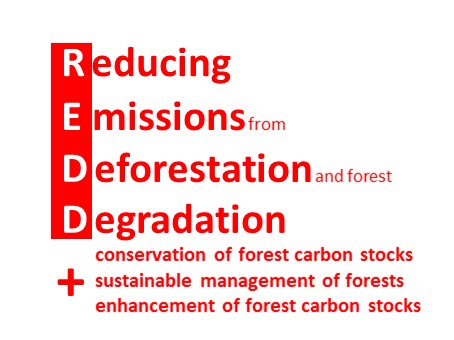REDD+ under the UNFCCC
REDD + is an instrument established under the United Nations Framework Convention on Climate Change (UNFCCC) to reward developing countries for climate change mitigation results from 5 activities:

Through this instrument, developing countries that are producing verifiable reductions in greenhouse gas emissions and/or enhancement of carbon stocks in the forest sector are eligible to receive "results-based payments" from a wide variety of sources, in particular from the Green Climate Fund (GCF).
According to the principles established under the Convention, developed countries should provide additional financial and technological support to developing countries in order to support their efforts towards mitigation and adaptation to climate change. In this context, the REDD+ results-based payments made should be counted towards compliance with the climate finance commitments of developed countries.
There is no provision under the UNFCCC for REDD+ results-based payments to be used by developed countries as offsets to fulfill their own mitigation commitments.
The Land Use, Land Use Change and Forestry (LULUCF) sector still represents a major source of emissions in developing countries. The sector presents a high potential for reducing emissions and for carbon sequestration with attractive costs, in comparison with the reality observed in other major emitting sectors, such as energy and transportation. Large scale REDD+ results-based payments will play a key role in fulfilling the mitigation potential projected for the LULUCF sector, estimated at up to 30% of the mitigation needed by 2030 to put the world on track to limit the average temperature rise to below 2ºC above preindustrial levels.
The approach to REDD+ defined under the Convention is national, i.e. the submission of results to the UNFCCC is the responsibility of the country. The countries seeking to obtain recognition of their REDD+ results should meet the following requirements:
a) develop a national REDD+ strategy or action plan;
b) submit a national forest reference emission level or forest reference level (or, as an interim measure, the corresponding sub-national levels);
c) have a robust and transparent national forest monitoring system that enables the monitoring and reporting on REDD+ activities (with sub-national monitoring as an interim measure); and
d) An information system to cover the implementation of the REDD+ safeguards.


Redes Sociais